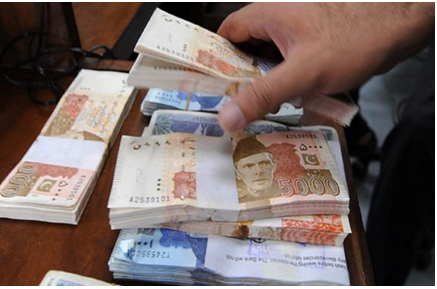INP-WealthPk
Moaaz Manzoor
With interest rates halved and inflation at record lows, businesses are cautiously increasing their borrowing to meet operational needs. However, experts stress that a sustainable investment revival hinges on consistent, long-term policy reforms, reports WealthPK.

Following several months of cautious optimism in the private sector, recent data from the State Bank of Pakistan (SBP) indicates a noticeable uptick in business borrowing as firms respond to falling interest rates and a more stable inflation outlook.
By May 2, private-sector borrowing had risen to Rs751 billion, up from Rs239.8 billion during the same period last year. This shift follows a steep drop in the policy rate — from 22% to 11% between June 2024 and April 2025 — amid a sharp decline in inflation to just 0.3% in April.
Most earlier borrowings have been retired, but improving macroeconomic indicators and lower borrowing costs have encouraged businesses to re-engage with banks for credit.
“Much of the borrowing has likely gone into meeting working capital requirements rather than capacity expansion or long-term investment,” Syed Ali Ehsan, Deputy Executive Director at PRIME, told WealthPK.
Although helpful, he emphasized that this short-term borrowing trend may not translate into lasting economic growth unless accompanied by deeper policy and structural reforms.
He added, “The surge in borrowing observed in April is also partially influenced by banks trying to meet their Advance-to-Deposit Ratio (ADR) targets to avoid the 15 percent incremental tax.” Therefore, he noted, part of the uptick may be driven more by regulatory pressures than by organic demand from the private sector.
Meanwhile, Syed Zafar Abbas, Manager at Zahid Latif Khan Securities, said, “We expect interest rates to fall into single digits, especially now that inflation is under control and at historic lows. A further rate cut will certainly have a positive impact. However, to truly energize private investment, it is crucial — even pivotal — that policies remain consistent and long-term.”
He warned that policy inconsistency has historically undermined investor confidence, and this time must be different if the government aims to create lasting economic momentum.
While the rise in private-sector borrowing marks a positive trend, it remains largely driven by short-term working capital needs. A shift toward stable policies and single-digit interest rates is essential to turn this trend into sustained economic growth and ensure that the private sector’s credit appetite evolves into real investment.
Credit: INP-WealthPk













